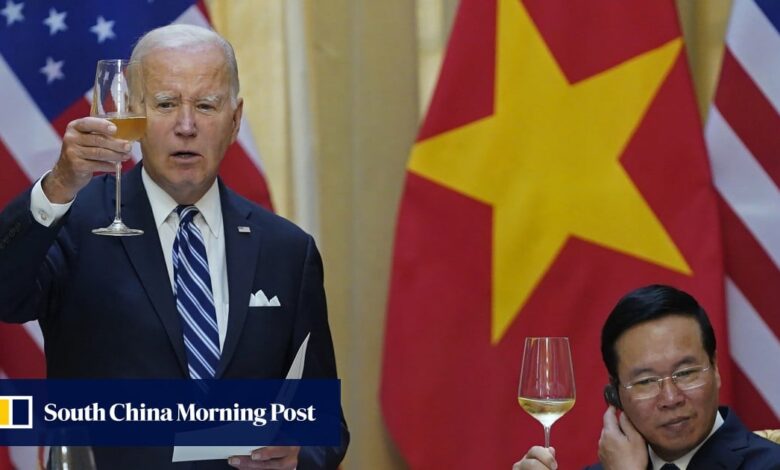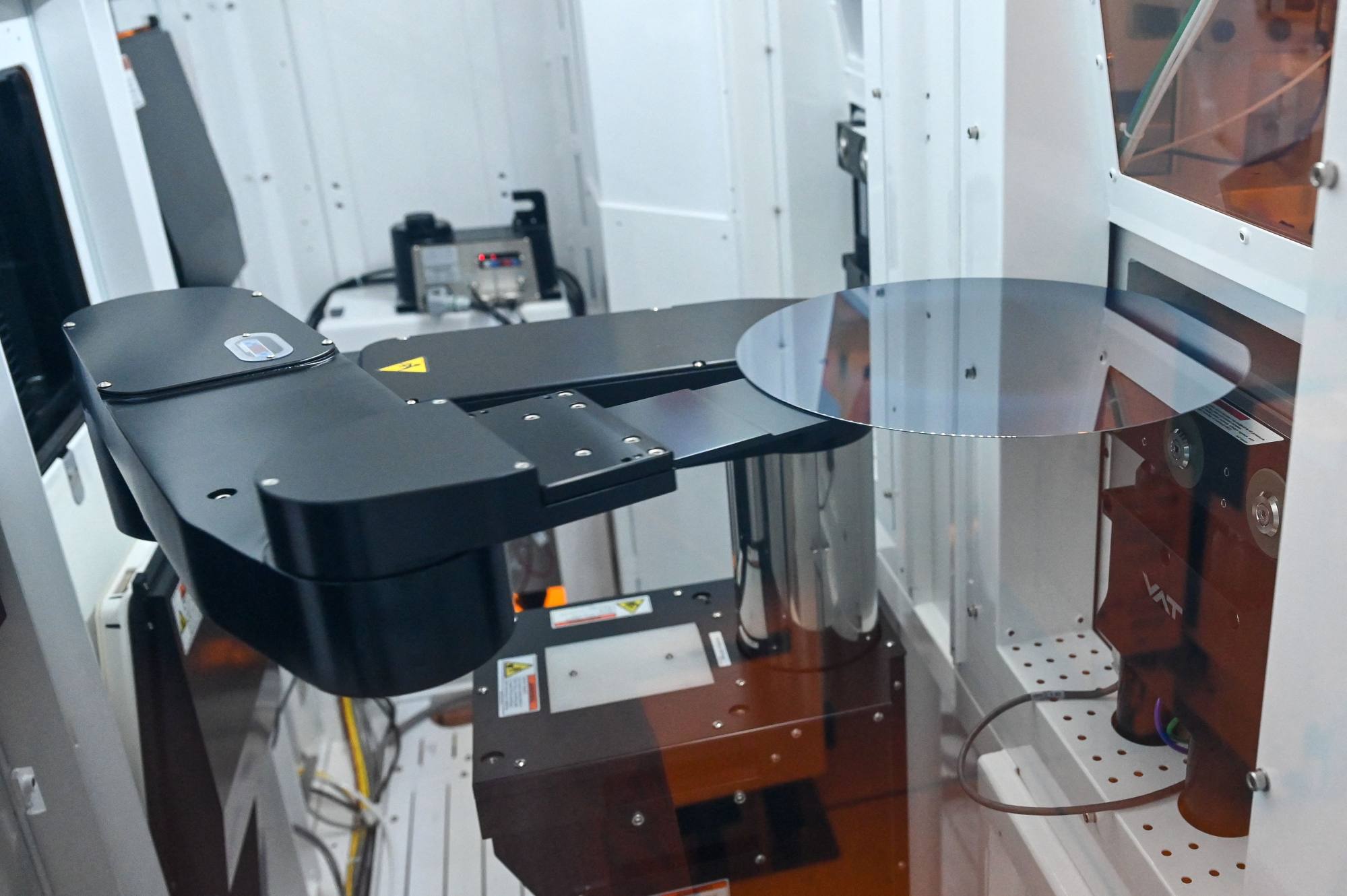US-Vietnam relations: Biden’s ‘friendshoring’ chip push hits a snag as Hanoi ‘cannot decouple from China’

[ad_1]
She also called on the US to “respect” the desire of Asian countries for “stability, cooperation, and development”.
Zachary Abuza, a professor at the National War College in Washington who specialises in Southeast Asian politics and security issues, said that while the US push for tech deals was a positive development, it ignored Vietnam’s economic overdependence on China.
‘Critical partners, critical time’: Biden hails closer ties with Vietnam
‘Critical partners, critical time’: Biden hails closer ties with Vietnam
“Vietnam cannot decouple from China,” said Abuza, adding that the Southeast Asian nation was not a major manufacturer of goods and was also facing the so-called middle-income trap, in which rising costs and declining competitiveness stymie an economy’s development.
“Most components [across sectors] are imported, mainly from China, 15 per cent of all auto parts for vehicles assembled in Vietnam are manufactured internally, the rest are imported,” Abuza said.
“That is why Vietnam runs such enormous trade deficits with China,” he added, referring to Hanoi’s more than US$60 billion deficit last year.
Vietnamese factories, especially those in the north between Hanoi and Haiphong, are an integral part of the Chinese supply chain and have been very hard hit by China’s economic slowdown and sharp decline in exports, he noted.
“So don’t believe all the hype about ‘friendshoring’, Vietnam has to diversify its own supply chains out of China,” Abuza said, referring to the trend of manufacturing and sourcing from countries that are geopolitical allies so as to reduce risks.
Don’t believe all the hype about ‘friendshoring’, Vietnam has to diversify its own supply chains out of China
Despite the US committing US$2 million in seed money for human-resource development in Vietnam, there were limits to Hanoi’s ability to supply a trained workforce and compete “without wages going through the roof”, Abuza said.
“While US-China tensions have hastened the pace of diversification, the connections to China will remain intact for now”, Menon said, adding that “for the foreseeable future”, US investments in the Vietnamese chips sector would have little impact on supply chain relations between Vietnam and China.
US, Vietnam jointly reject ‘threat or use of force’ to settle South China Sea disputes
US, Vietnam jointly reject ‘threat or use of force’ to settle South China Sea disputes
Citing analysts, China’s nationalistic Global Times tabloid said on Monday that the US was “now doing almost everything it can to contain China’s legitimate and rightful sci-tech development in fields like semiconductors, and forcing its allies to do the same”.
Washington, it added, would never allow its ties with Hanoi to “reach the level of China-Vietnam relations” as the latter are both ruled by communist parties and the US “is hostile towards socialism”.
Bich Tran, an adjunct fellow with the Washington-based Centre for Strategic and International Studies’ Southeast Asia Programme, said the US plan to turn Vietnam into a chip powerhouse is backed by the State Department’s International Technology Security and Innovation Fund, which has US$500 million allocated over the next five years to ensure diversification in the US semiconductor supply chain.

Tran said working closely with the US “significantly” fast track development but acknowledged that Vietnam needed to tackle its shortage of tech talent.
Vietnam is currently producing less than 20 per cent of the 20,000 or so engineers it needs each year to power its semiconductor industry, Information and Communications Minister Nguyen Manh Hung acknowledged last week.
Huynh Tam Sang, an international-relations lecturer at Vietnam National University, said Hanoi had consistently pursued a policy of economic diversification amid great power rivalry.
“Economic security helps bolster the Vietnamese ruling party’s legitimacy. Vietnam will likely invite more trouble than gains if it seeks an abrupt divorce from the Chinese market,” he said.
As Vietnam looks to upgrade US ties, is the move more symbolism than substance?
As Vietnam looks to upgrade US ties, is the move more symbolism than substance?
Forging closer ties with the US in trade and key technologies is crucial for Vietnam to reduce its reliance on China, Huynh added.
Biden’s visit to Vietnam took place amid criticisms of the US leader not pressuring Hanoi to improve human rights in the country.
Carolyn Nash, Asia advocacy director for Amnesty International, told Reuters this week that the Biden administration “is sending a message that the US is willing to tolerate blatant failures to protect and uphold human rights”.
Human Right Watch said on Saturday that Vietnam was holding at least 159 political prisoners for peacefully exercising basic civil and political rights, and at least 22 others were in detention pending trial.
[ad_2]
Source link




